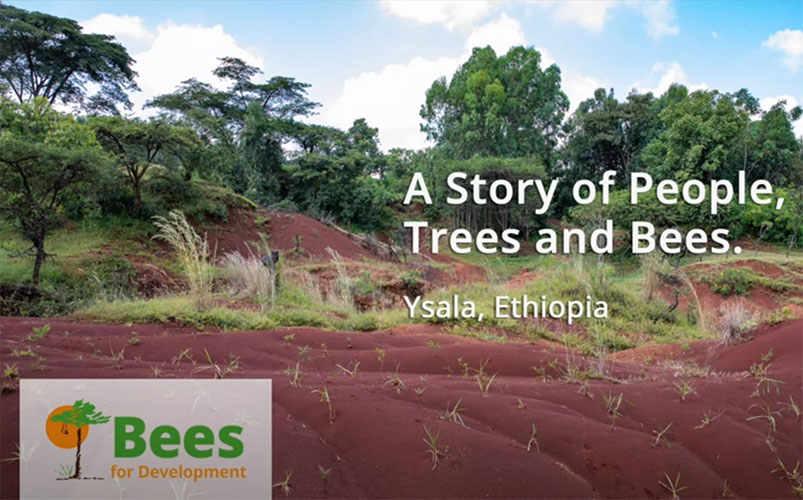What is the solution?
Reverse the effects of overgrazing and deforestation on degraded land by planting and protecting trees. In Ysala, Ethiopia, this stabilized the land to prevent soil erosion, provided habitat for pollinators, and brought economic opportunity to the community.
This solution improves our resource security in the planet category.
How does it #MoveTheDate?
Planting and protecting trees on formerly degraded land allows forests to recover and creates a thriving habitat for pollinators, such as bees. Bees play an essential role in maintaining biodiversity.
How is it scalable?
There are innumerable communities in low-income countries which could benefit from beekeeping programs. The cost of implementing simple beehives in remote areas is low, especially when compared to the long-term benefits of biodiversity restoration and the sustainable income opportunities that beekeeping provides.
What is the solution?
Reverse the effects of overgrazing and deforestation on degraded land by planting and protecting trees. In Ysala, Ethiopia, this stabilized the land to prevent soil erosion, provided habitat for pollinators, and brought economic opportunity to the community.
This solution improves our resource security in the planet category.
How does it #MoveTheDate?
Planting and protecting trees on formerly degraded land allows forests to recover and creates a thriving habitat for pollinators, such as bees. Bees play an essential role in maintaining biodiversity, which in turn helps mitigate climate change.
How is it scalable?
There are innumerable communities in low-income countries which could benefit from beekeeping programs. The cost of implementing simple beehives in remote areas is low, especially when compared to the long-term benefits of biodiversity restoration and the sustainable income opportunities that beekeeping provides.
 In some parts of northern Ethiopia, the almost total loss of natural forests is undermining the environments and natural resources on which local people depend. Bees for Development is working to reverse this process by replacing forest cover and restoring bee habitat.
In some parts of northern Ethiopia, the almost total loss of natural forests is undermining the environments and natural resources on which local people depend. Bees for Development is working to reverse this process by replacing forest cover and restoring bee habitat.
Large parts of the region around Lake Tana, Ethiopia have a problem with degraded land, through a combination of climate impacts, loss of trees and overgrazing. Planting trees and protecting them helps people and nature – including bees – as well as stabilizing the land to prevent soil erosion.
Bees for Development Ethiopia has been working with communities in northern Ethiopia to rehabilitate severely degraded land. The local community says which land needs to be protected and agrees to close off the area from livestock grazing – to allow natural forest to recover.
There’s no benefit in waiting!
Acting now puts you at a strategic advantage in a world increasingly defined by ecological overshoot. Countless solutions exist that #MoveTheDate. They’re creative, economically viable, and ready to deploy at scale. With them, we can make ourselves more resilient and #MoveTheDate of Earth Overshoot Day. If we move the date 6 days each year, humanity can be out of overshoot before 2050.

